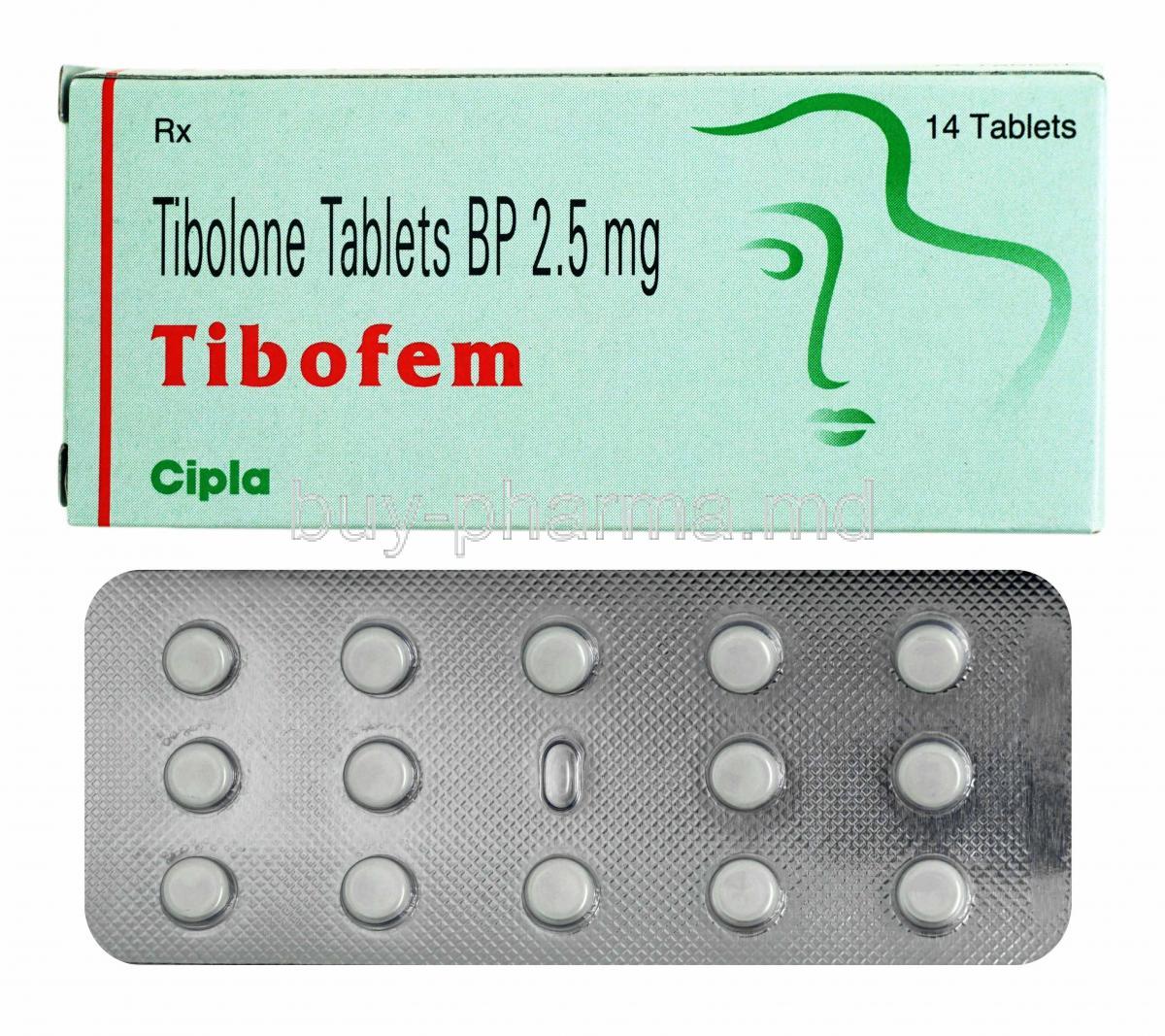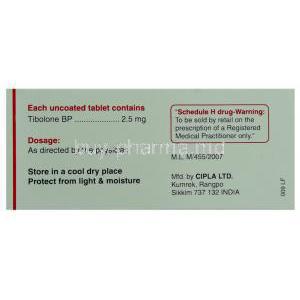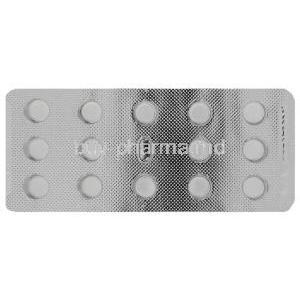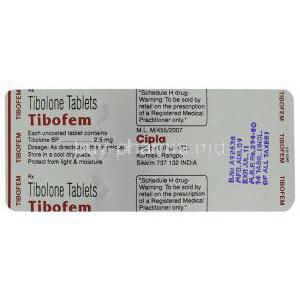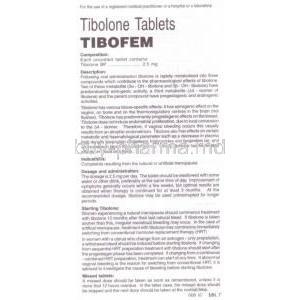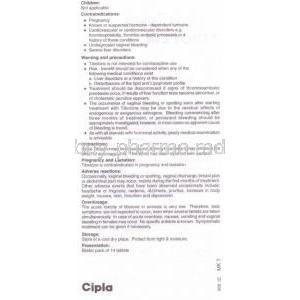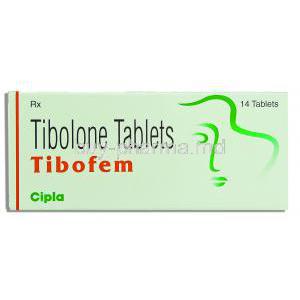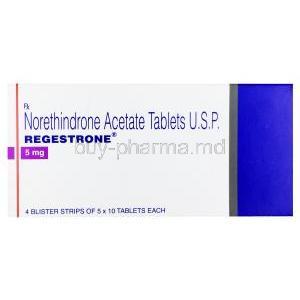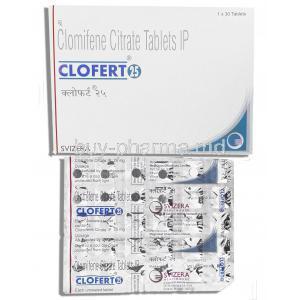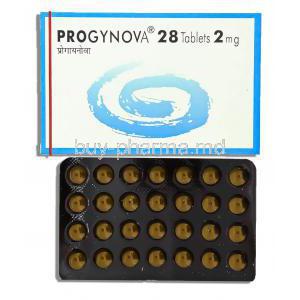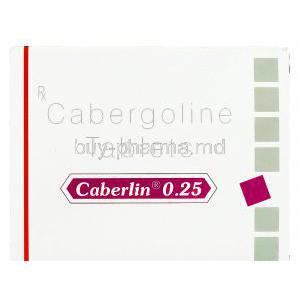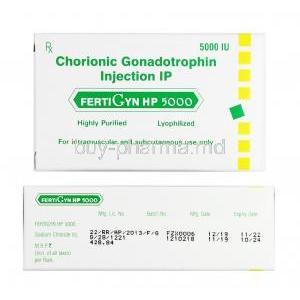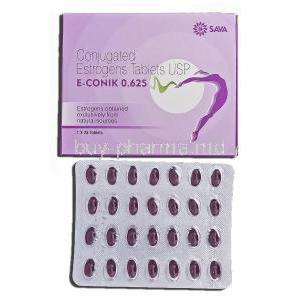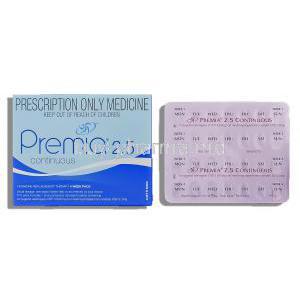Introduction
Overview of Tibofem and Tibolone
Tibofem contains tibolone, a synthetic steroid hormone specifically designed for postmenopausal women. It acts as a unique tissue-selective hormone that combines estrogenic, progestogenic, and androgenic effects. The medication alleviates distressing menopausal symptoms and contributes to overall well-being during the transition after menopause.
Historical background and approval status
Tibolone was developed in the late 20th century as an alternative to conventional hormone replacement therapies. Its introduction was aimed at minimizing complications linked to combined estrogen-progestogen regimens. Over time, regulatory authorities across Europe, Asia, and other regions approved Tibolone for menopausal management and osteoporosis prevention, highlighting its clinical significance.
Clinical role in hormone replacement therapy (HRT)
Tibofem serves as an innovative approach to HRT. Unlike traditional therapies, tibolone exerts targeted effects depending on the tissue environment, reducing unwanted side effects. It is widely used to reduce vasomotor disturbances, protect bone mass, and improve sexual health in women post-menopause.
Composition and Formulation
Active ingredient: Tibolone
The primary component of Tibofem is tibolone, a synthetic steroid with multifaceted hormonal activity.
Available strengths and dosage forms
Tibofem is usually available in 2.5 mg oral tablets designed for daily administration. The once-daily dosing simplifies treatment adherence.
Excipients and inactive ingredients
In addition to tibolone, the tablets contain inactive substances such as lactose monohydrate, potato starch, ascorbyl palmitate, and magnesium stearate. These ensure stability, tablet integrity, and predictable absorption.
Mechanism of Action: How Tibolone Works
Tissue-selective activity
Tibolone is metabolized into compounds with estrogenic, progestogenic, and androgenic actions. This selective activation produces tailored benefits across different tissues:
- Estrogenic activity in bone and vaginal tissue
- Progestogenic activity in the endometrium
- Androgenic activity improving sexual drive and energy
Effect on bone density and osteoporosis prevention
Tibolone helps reduce bone turnover by mimicking estrogen in skeletal tissue, making it effective in preventing osteoporosis and minimizing fracture risk in postmenopausal women.
Impact on lipid metabolism and cardiovascular system
Tibolone can influence serum lipids, often lowering total cholesterol and triglycerides. However, its overall cardiovascular profile requires careful consideration in women at high vascular risk.
Influence on vasomotor symptoms and vaginal atrophy
By stabilizing hormonal fluctuations, tibolone significantly alleviates hot flashes, excessive sweating, and vaginal atrophy, enhancing quality of life during menopause.
Therapeutic Uses
Primary indication: Menopausal symptom relief
- Hot flashes and night sweats: Reduces frequency and severity, providing comfort.
- Vaginal dryness and discomfort: Restores lubrication and elasticity of vaginal tissues.
- Mood swings and sleep disturbances: Improves mood stability and promotes restful sleep.
Prevention of osteoporosis in postmenopausal women
Regular use of Tibofem helps preserve bone density and prevent fractures, especially in women at elevated risk.
Role in sexual function and libido enhancement
Androgenic activity of tibolone boosts libido, sexual satisfaction, and overall vitality in postmenopausal women.
Off-Label Uses of Tibolone
Potential role in cognitive health and memory
Preliminary studies suggest tibolone may have a neuroprotective effect, potentially aiding in memory and cognitive performance.
Use in mood disorders related to menopause
Tibolone’s balanced hormonal activity may help stabilize mood and relieve mild depressive symptoms associated with menopause.
Bone health beyond standard osteoporosis prevention
Beyond fracture prevention, tibolone may contribute to long-term skeletal robustness and mineral balance.
Investigational use in endometriosis or surgical menopause
Research is ongoing regarding its role in alleviating symptoms after surgical menopause or in patients with endometriosis.
Dosage and Administration
Standard adult dosage guidelines
The recommended dosage is 2.5 mg once daily, taken at the same time each day.
Recommended duration of treatment
Therapy should be tailored individually. The lowest effective dose for the shortest duration is advised to minimize risks.
Administration method and timing
Tibofem tablets should be swallowed with water, with or without food. Consistency in timing improves outcomes.
Adjustments in special populations
Patients with liver impairment or other health issues may require careful evaluation before initiation.
Side Effects of Tibofem (Tibolone)
Common side effects
- Weight gain and mild fluid retention
- Breast tenderness or discomfort
- Abdominal pain, bloating, or digestive upset
- Breakthrough vaginal bleeding or spotting
Serious adverse effects
- Increased risk of breast and endometrial cancer with prolonged use
- Elevated risk of venous thromboembolism and pulmonary embolism
- Stroke and other cerebrovascular complications
Drug Interactions
Interaction with anticoagulants
Tibolone may enhance the effect of anticoagulants like warfarin, necessitating close monitoring of coagulation parameters.
Impact on enzyme-inducing drugs
Drugs such as phenytoin, carbamazepine, and rifampicin can accelerate tibolone metabolism, reducing efficacy.
Interaction with other hormone therapies or supplements
Concurrent use with additional hormone therapies may amplify side effects or alter therapeutic outcomes.
Warnings and Precautions
Long-term safety concerns
Extended use requires risk-benefit assessment due to increased risks of hormone-sensitive cancers and vascular events.
Risks in women with high cardiovascular risk
Women with hypertension, diabetes, or vascular disease should be closely monitored if prescribed tibolone.
Caution in patients with history of hormone-sensitive cancers
Tibolone is contraindicated or used with extreme caution in women with a history of breast, ovarian, or endometrial cancer.
Importance of regular monitoring and check-ups
Routine mammography, pelvic examinations, and cardiovascular assessments are recommended during therapy.
Contraindications
Known or suspected breast or endometrial cancer
Tibolone is contraindicated in women with a current or past history of breast cancer or endometrial carcinoma. The hormone-sensitive nature of these malignancies makes tibolone unsafe, as it may stimulate disease progression or recurrence.
History of thromboembolic disorders
Women with prior episodes of deep vein thrombosis, pulmonary embolism, or arterial thrombotic events such as myocardial infarction or stroke should not receive tibolone. Its use could increase the likelihood of recurrent clot formation and severe vascular complications.
Undiagnosed vaginal bleeding
Any unexplained genital bleeding must be thoroughly investigated before tibolone therapy is considered. Initiating treatment without excluding malignancy or other serious causes is strongly discouraged.
Severe liver disease
Tibolone undergoes hepatic metabolism, and severe impairment of liver function significantly alters drug clearance. In such cases, therapy is contraindicated due to the risk of accumulation and toxicity.
Known hypersensitivity to Tibolone or excipients
Patients with documented allergic reactions to tibolone or any inactive ingredients in the formulation should avoid use, as hypersensitivity reactions can pose substantial health risks.
Careful Administration
Patients with controlled hypertension
Women with stable but elevated blood pressure require cautious use of tibolone. Blood pressure monitoring is advised, as hormonal therapies can influence vascular tone and fluid balance.
Women with a family history of hormone-dependent cancers
In patients with genetic or familial predisposition to breast or ovarian cancer, tibolone should be prescribed with vigilance. Regular screening and risk-benefit evaluation are essential.
Patients with gallbladder disease or liver function impairment
Tibolone may exacerbate gallbladder disease and should be used judiciously in patients with hepatic impairment. Monitoring of liver enzymes is recommended throughout treatment.
Special Population Use
Elderly patients: considerations in osteoporosis prevention
Tibolone provides skeletal benefits by improving bone density, but in elderly women, risks such as stroke may outweigh advantages. Individualized assessment is required to determine its role in osteoporosis prevention.
Pregnant women: contraindications and teratogenic risks
Tibolone must not be used during pregnancy. Animal studies indicate teratogenicity, and exposure may result in fetal harm. Women of childbearing potential should employ reliable contraception during therapy.
Nursing mothers: excretion in breast milk and safety concerns
Excretion of tibolone or its metabolites in human milk has not been adequately studied, but the potential for adverse effects on the nursing infant necessitates avoidance during lactation.
Children and adolescents: not recommended; lack of safety data
The safety and efficacy of tibolone have not been established in individuals under 18 years of age. Use in this population is not recommended due to the absence of clinical data.
Overdosage and Emergency Measures
Symptoms of overdose
Excessive ingestion may result in nausea, vomiting, dizziness, or abnormal vaginal bleeding. Symptoms are usually mild but require prompt attention.
Recommended supportive care and monitoring
There is no curative therapy for overdose. Symptomatic management, observation, and supportive care remain the mainstay of treatment. Hemodynamic stability should be maintained.
No specific antidote available
As no antidote exists for tibolone, clinicians should focus on clinical stabilization and correction of presenting symptoms.
Storage and Handling Precautions
Recommended storage conditions
Store tibolone tablets at controlled room temperature, away from excessive heat, light, and moisture. Avoid storage in bathrooms or humid environments to prevent degradation.
Shelf life and packaging details
The product should be used within its indicated shelf life. Packaging is designed to protect the tablets from environmental factors, ensuring stability and potency throughout its validity period.
Safe handling instructions for patients and caregivers
Tablets should be handled with dry hands and kept in their original packaging until use. They must be stored securely out of the reach of children and pets.
Important Precautions and Patient Counseling
Need for baseline and periodic health evaluations
Before starting therapy, a comprehensive medical evaluation is required, including gynecological examination and cardiovascular assessment. Follow-up check-ups should be scheduled at regular intervals.
Importance of mammography and gynecological exams
Annual mammograms and pelvic examinations are essential to detect early malignancies and monitor endometrial health during tibolone therapy.
Lifestyle modifications alongside treatment
Patients are encouraged to complement therapy with healthy lifestyle choices such as:
- Adopting a nutrient-rich diet to support cardiovascular and bone health
- Engaging in regular weight-bearing exercise
- Limiting alcohol intake and avoiding smoking
Guidance on missed dose and treatment discontinuation
If a dose is missed, it should be taken as soon as remembered unless it is almost time for the next dose. Double dosing is not recommended. Discontinuation should only occur under medical supervision, with risks and benefits carefully considered.
Tibofem, Tibolone FAQ
Customers also bought
Popular Products
Similar Product
Generic Prempro
0.625 mg / 2.5 mg

